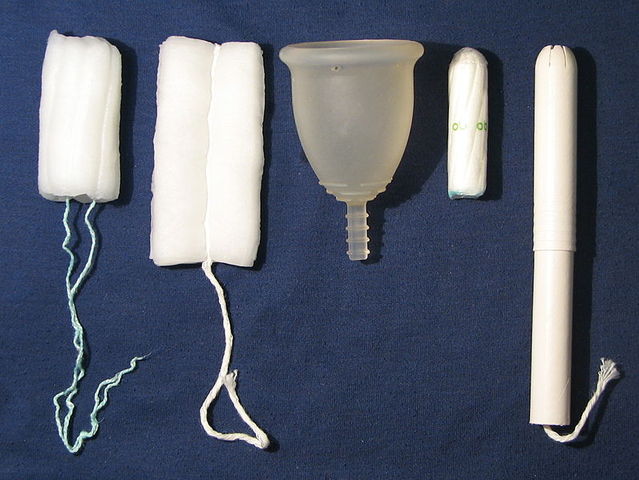“Can you see blood?” My twin sister asks me, timidly, turning around in her new dress, and hoping, praying, she hadn’t “embarrassed” herself on a day designated for nothing but smiles and happiness. “No,” I reassure her, and we move on without a second thought, slipping on our shiny robes and square caps.
Those five-word conversations happened many times before our high school graduation, and would continue on for many years after. Those five-word conversations, repeated as monotonously as rubbing one’s eyes in the morning, carry a deep shame for menstruation, as if the affectionately labeled “Shark Week” was, in fact, an actual shark attack.
Two years later, as a new group of seniors gets ready to graduate, my hometown of Brookline, Massachusetts has taken a huge step towards menstrual equity, becoming the first municipality in the country to provide free pads and tampons in all town owned restrooms. This means that regardless of gender identity, people will be able to access period products in Brookline, with the legislation going into full effect in July 2021. The enterprise for total period parity was largely championed by local legislator, and self-proclaimed feminist, Rebecca Stone.
As menstruation is stigmatized, the immense efforts we take to maintain the secrecy of our bleeding rituals have been normalized – tampons tucked against our palms and passed between each other in class like illicit drugs, flat palmed in a high-five or handshake. No discussion needed in the sxsterhood of cycles, as the not-so-secret code of repressed bodily functions have been ingrained in us since those first drops of blood “ruined” a favorite pair of underwear.
Period shame and the idea of menstruation equity demands great urgency than just confronting a cultural taboo. It’s a rights issue. By not including pads and tampons in public bathrooms, we are making a statement about whose bodies and health necessities are of value. Sarah Groustra, a classmate of mine, reframed the issue in a viral op-ed in our school newspaper, writing, “Most people would balk at the idea of having to pay for toilet paper in a public restroom. Tampons and other menstrual sanitation products, however, are not considered essential.” Even though period products are an unquestionable necessity for anyone who menstruates, the cycle stigma has been intensely personalized, demanding that menstruation product purchasing be done in secret, and out of the hands of the government.
Groustra’s rhetoric inspired Stone to put this issue on the local political agenda, passing unanimously by Brookline Town Meeting on May 23. Not only will providing menstrual products in public buildings help to combat the shame and secrecy attributed to periods, but it also begins to confront the pervasive problem of “period poverty,” where low-income people lack access to the menstrual hygiene products, education, and even toilets necessary in order to handle one’s period safely and with the dignity one deserves. Menstrual equity is a class issue, with The Huffington Post predicting that the average woman will spend $18,171 on period products (tampons, pads, pain medication, etc.) during her life. In 35 states, tampons are legally considered a “luxury,” and therefore not exempt from sales taxes, while Viagra, considered a healthcare product, does not have the added charge.
Although Brookline is the first place to provide unrestricted access to menstruation products, other states and municipalities are working to destigmatize the cycle. Ten states have outlawed the “tampon tax,” while California, Illinois, and New York require that their public high schools provide menstrual products in bathrooms. The battle to provide health essentials and destroy the cultural stigma surrounding periods is far from over, but I’m proud that places like Brookline, and peers like Groustra, are paving the way for greater equity.
Top photo via Wikimedia Commons / גביע האלופותגביע האלופות
More from BUST
How To Have Your First Zero Waste Period
Why Sterilization At 31 Was This Woman’s Plan A
Just A Few Of History’s Baddest Queer Bitches


